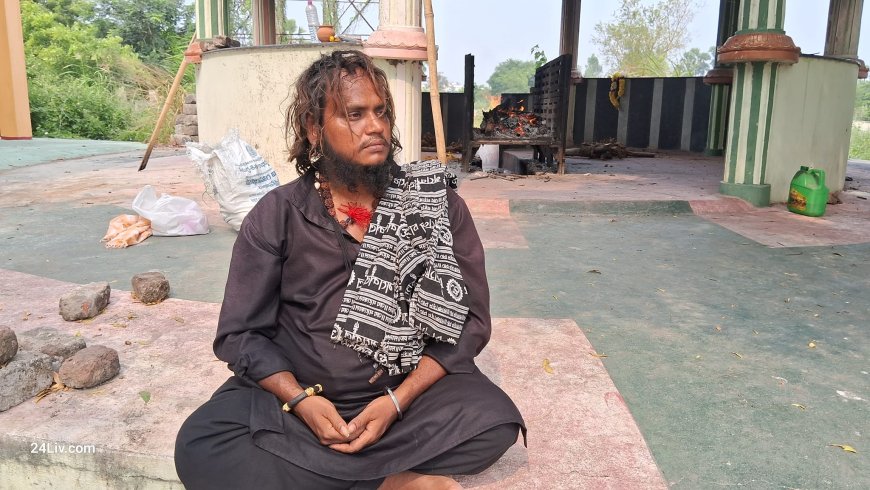ChaturvidhaPurushartha – The four aims to full fill human life. Explained by Sri Anand Nath ji Aghori

There are four aspects or facets of human life:
- Dharma,
- Artha,
- kama and
- Moksha.
They have to do with living one’s purpose, having a stable foundation in the world, wisely fulfilling desires, and freedom from the constraints of one’s false identities. Each of these is a part of life. While it may be true that ultimately the goal of life has only to do with final liberation (moksha), the others are virtually essential steps along the way. Recognizing this is one way of holding the suggestion to live “in” the world, while not being “of” the world.
Artha (security) has to do with providing for the hunger, thirst, and safety needs that are inherent in living in a physical body. In our modern world, this generally means having money to provide the essentials. Even the wandering monk who receives food and clothes from the charity of others is a part of this, as the food and clothes were undoubtedly a part of the economic process in one way or another. Artha recognizes this level of physical or material need, which is not contrary to spiritual life.
The first two aims are where most people are unconsciously stuck in our culture. Our culture unfortunately does not support the higher aims of a being as our culture’s foundation is a profit-based paradigm weaving in a programming that work is what life is about. Most people spend their lives from a fear base, running after their desires and those desires are based on the fears created by their upbringing in this cultural paradigm of sales and marketing to make you believe you are not good enough or there is always something better. There is a lack of awareness of contentment in what is, what you are, and what you have. This is further supported by the high divorce rate and short life of a marriage nowadays, the highest rate of obesity in the world, the high rate of diseases, and other obvious facts and figures.
Dharma (higher purpose of life) has to do with fulfilling our life in ways that are consistent with the whole flow of the universe. It is a process of alignment, whereby one moves steadily, wisely, and with a clear mind in the natural flow of Truth, God, Divine, or whatever one chooses that naturally intuited reality. Dharma has been called natural law, harmony, truth, duty, wisdom, and the inherent nature of things. The word “Dharma” is from dhri, meaning to hold together, to sustain. To live in dharma is to live with our nature to be in accord with the whole flow of things. Dharma is not in the mind, it is not what you desire to be or the path you desire to be on. It is a higher purpose, a higher truth. It has been called duty in this context.
Moksha (liberation or freedom) is the final liberation from all of the deep driving impressions that continually play out in the mind and the world, that keep causing us to come and go from bodily form. It means that the deep conditionings no longer bind. It is freedom from the bondage of our ropes of karma that seems to bind us. Moksa is the direct experience of the Absolute Truth or Reality, along with the total setting aside of all false identities of who we think we are. Self-realization, the direct experience of our true nature as pure consciousness, Purusha, or Atman is one stage. That experience, plus the total, permanent transcendence of the conditionings is moksha.
The four are not easy to do, to live in our daily life in the culture we live in today where life is about work and culture is based on materialism and profit making. They are points of awareness, aspects of both our being and the sadhana (spiritual practices) that we each live on our way to the highest goal of human life.
It is said in Ayurveda by AchyaryaCharaka in CharakaSamhitaChpt 1 verse 15 – 17 that good health stands at the very root of the accomplishment and even ability to acquire these in your life. Diseases are destroyers of health, well-being, and life. Diseases take away health, well-being, and life. Disease has manifested as a great obstacle among men.
It is pretty obvious that all of these four aims are not achievable if a person does not have their health. If one is sick they cannot work or earn their security. Having health creates job security. If one is sick, they cannot partake in the enjoyment of life.
In our culture today, what we consider enjoyment tends to be what creates ill health and disease in the first place. We are pretty oblivious as we walk this earth. It is a very ignorant and strange idea to poison your body to celebrate but yet we do this every holiday, birthday, or any time we have anything to celebrate with unhealthy food, and excessive amounts of alcohol or other things of the same lot. Many do this purely out of ignorance of their actions while others do this with consciousness. Which do you think has a higher price to pay?
If one is stuck in the interplay of running after security due to fears and unconsciously giving to their desires, there is no health, there is no dharma and there is no moksha. The four aims of a human being are unattainable.
What's Your Reaction?









































































